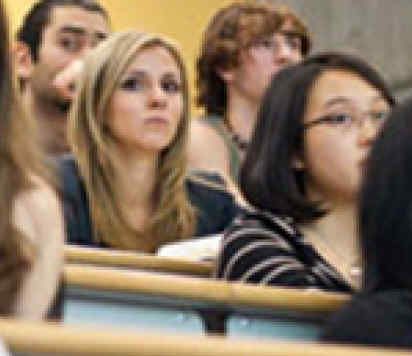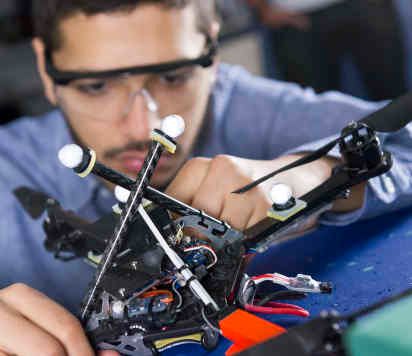Our degrees cover both fundamental and applied aspects of aerospace sciences. Sustainability in the aerospace sector is a key focus in both our undergraduate and MSc programs. The modules fall into three categories: core modules for fundamentals, and modules with both indirect and direct focus on sustainability.
Core modules that teach fundamentals
Year 1
- Aerodynamics 1
- Computing and Numerical Methods 1
- Engineering Practice 1
- Introduction to Aerospace
- Materials 1
- Mathematics 1
- Mechanics
- Structures 1
- Thermodynamics and Heat Transfer
Year 2
- Aerodynamics 2
- Computing and Numerical Methods 2
- Engineering Practice 2: Technical
- Flight Dynamics and Control
- Materials 2
- Mathematics 2
- Structures 2
Year 3
Year 4
Modules with indirect focus on sustainability
Year 1
Year 2
Years 3 & 4
- Aerospace Vehicle Design
- Control Systems
- Aeroelasticity
- Applications of Computational Fluid Dynamics
- Computational Fluid Dynamics S2
- Lightweight Structures S3
- Finite Elements S5
- High-Performance Computing
- Flow Instability and Transition
- Computational Mechanics S7
- Spacecraft Propulsion S5
- Spacecraft Structures S4
- Spacecraft Systems
- Turbulence and Turbulence Modelling S4
- Advanced Fluid Mechanics and Fluid Structure Interaction
- Aerothermodynamics of Launchers and Re-entry Vehicles S1
- Orbital Mechanics S3
- Systems Engineering for Unmanned Aerial Vehicles
- Artificial Intelligence for Aerospace Engineers
Modules with direct focus on sustainability
Year 1
Year 2
Years 3 & 4
- Group Design Project (see some recent projects below)
- Major Individual Research Project
- Advanced Manufacturing S2
- Advanced Propulsion S1
- Design for Additive Manufacturing S1
- Optimisation IDX S5
MSc Advanced Aeronautical Engineering, Advanced Computational Methods, Composites
Please see the College's Study pages for more information on the below MSc modules
- Aircraft Design and Airworthiness
- Applied Aerodynamics
- Emerging Technologies for Green Aviation
- Control Theory for Flow Management
- Composite Innovation – Nanocomposites and Structural Power
- Structural Integrity and Health Monitoring
Examples of recent Group Design Projects
Hydrogen and ammonia powered aircraft, hybrid electric regional airliners, electric aerial delivery vehicles, eVTOL commuter aircraft, design of an electric race cars, solar panel powered cars, etc.


